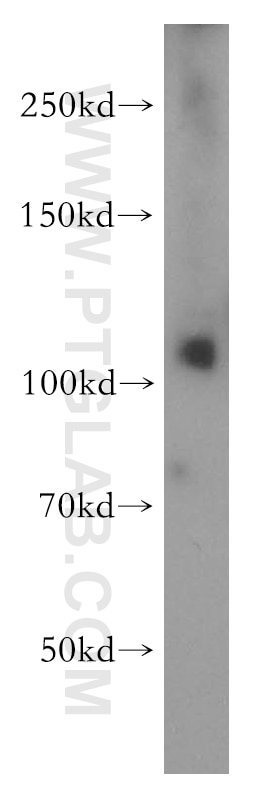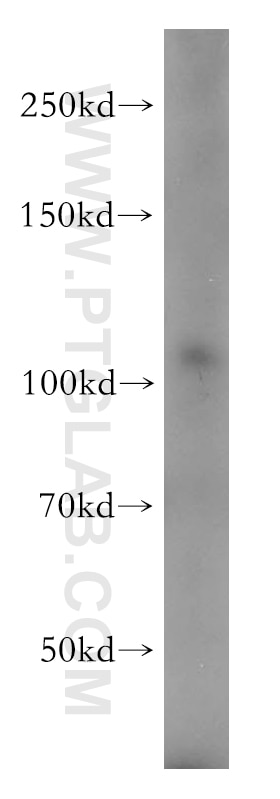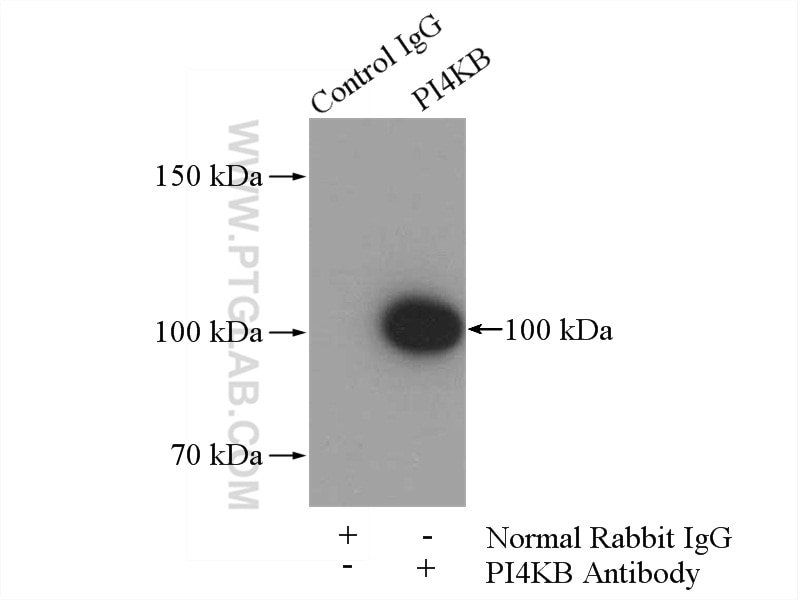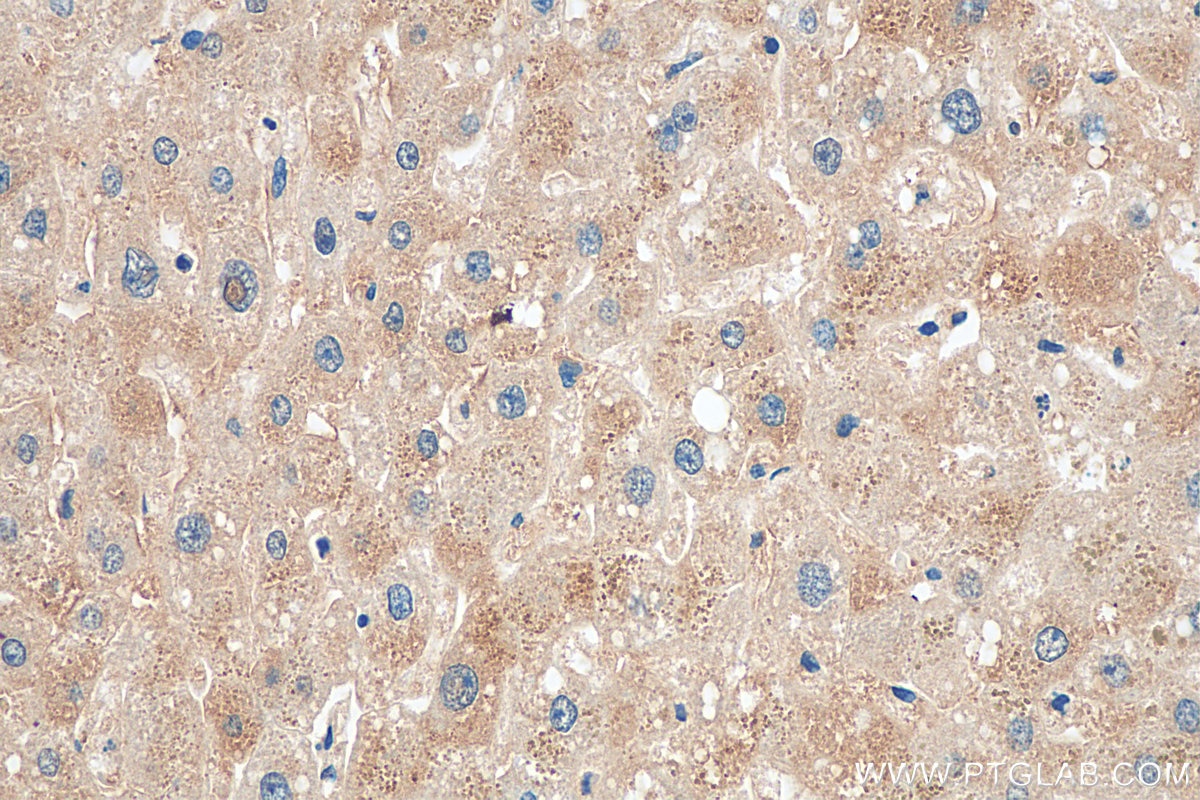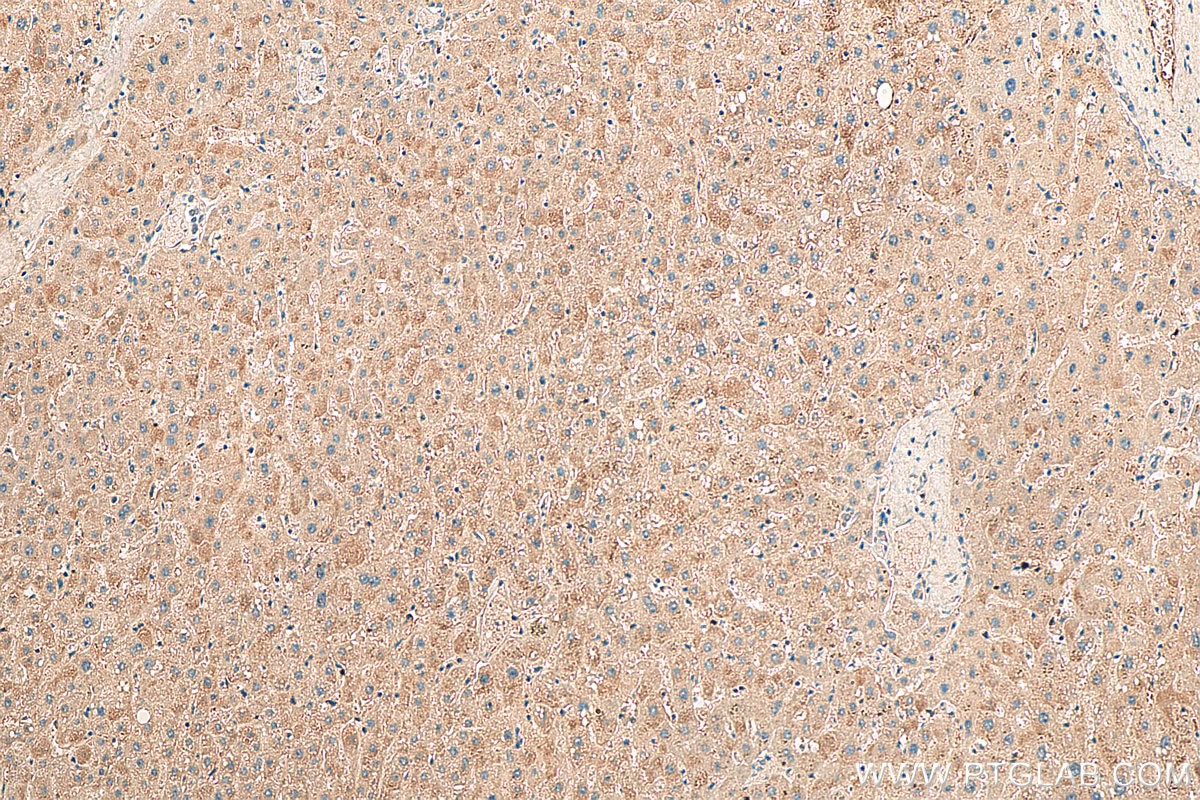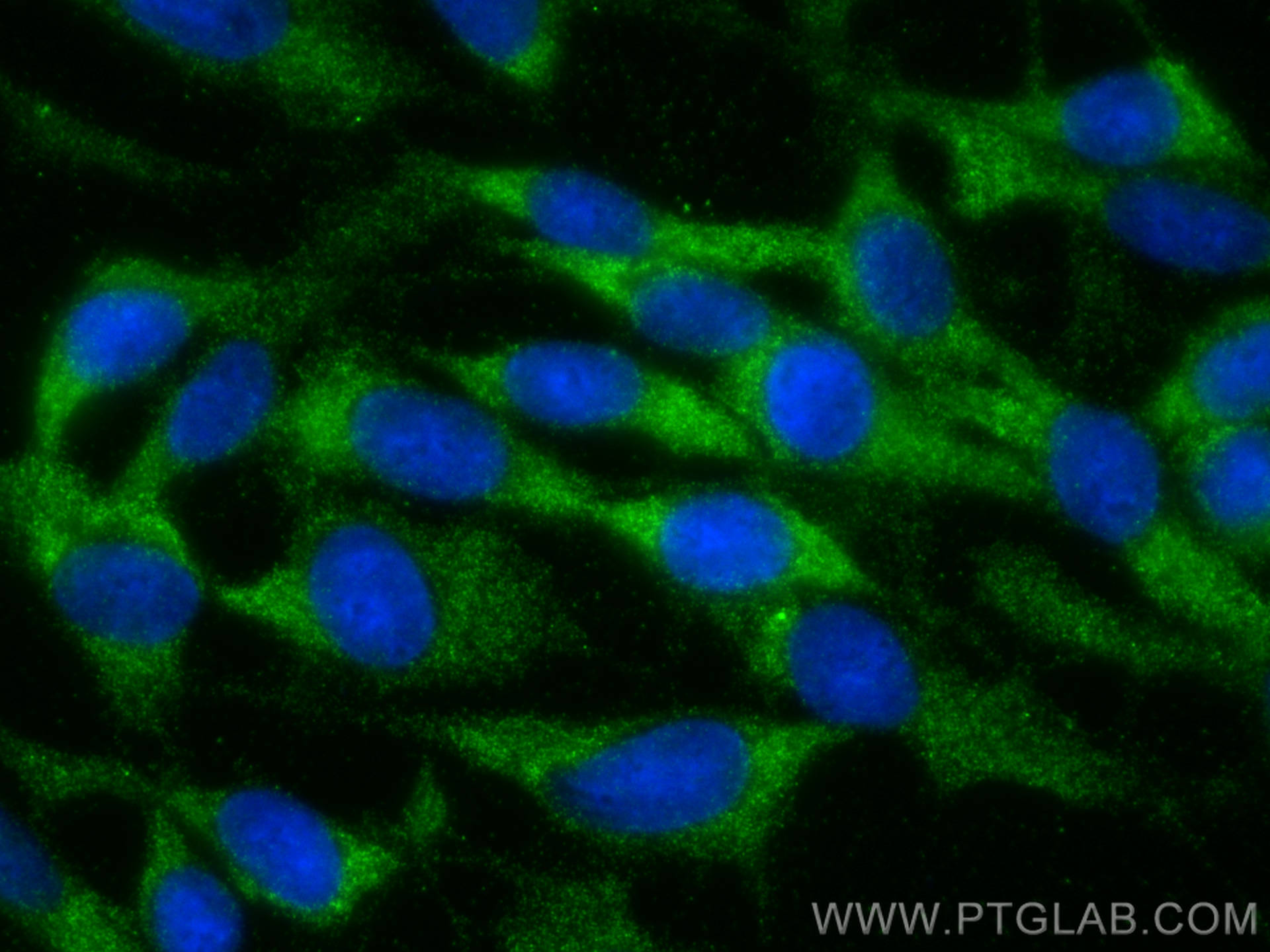- Phare
- Validé par KD/KO
Anticorps Polyclonal de lapin anti-PI4KB
PI4KB Polyclonal Antibody for WB, IP, IF, IHC, ELISA
Hôte / Isotype
Lapin / IgG
Réactivité testée
Humain, rat, souris
Applications
WB, IHC, IF/ICC, IP, ELISA
Conjugaison
Non conjugué
N° de cat : 13247-1-AP
Synonymes
Galerie de données de validation
Applications testées
| Résultats positifs en WB | cellules K-562, cellules NIH-3T3 (ARNi) |
| Résultats positifs en IP | cellules K-562 |
| Résultats positifs en IHC | tissu hépatique humain, il est suggéré de démasquer l'antigène avec un tampon de TE buffer pH 9.0; (*) À défaut, 'le démasquage de l'antigène peut être 'effectué avec un tampon citrate pH 6,0. |
| Résultats positifs en IF/ICC | cellules C6, |
Dilution recommandée
| Application | Dilution |
|---|---|
| Western Blot (WB) | WB : 1:500-1:1000 |
| Immunoprécipitation (IP) | IP : 0.5-4.0 ug for 1.0-3.0 mg of total protein lysate |
| Immunohistochimie (IHC) | IHC : 1:50-1:500 |
| Immunofluorescence (IF)/ICC | IF/ICC : 1:200-1:800 |
| It is recommended that this reagent should be titrated in each testing system to obtain optimal results. | |
| Sample-dependent, check data in validation data gallery | |
Applications publiées
| KD/KO | See 1 publications below |
| WB | See 7 publications below |
| IF | See 2 publications below |
Informations sur le produit
13247-1-AP cible PI4KB dans les applications de WB, IHC, IF/ICC, IP, ELISA et montre une réactivité avec des échantillons Humain, rat, souris
| Réactivité | Humain, rat, souris |
| Réactivité citée | rat, Humain, souris |
| Hôte / Isotype | Lapin / IgG |
| Clonalité | Polyclonal |
| Type | Anticorps |
| Immunogène | PI4KB Protéine recombinante Ag3989 |
| Nom complet | phosphatidylinositol 4-kinase, catalytic, beta |
| Masse moléculaire calculée | 801 aa, 90 kDa |
| Poids moléculaire observé | 100 kDa |
| Numéro d’acquisition GenBank | BC040300 |
| Symbole du gène | PI4KB |
| Identification du gène (NCBI) | 5298 |
| Conjugaison | Non conjugué |
| Forme | Liquide |
| Méthode de purification | Purification par affinité contre l'antigène |
| Tampon de stockage | PBS avec azoture de sodium à 0,02 % et glycérol à 50 % pH 7,3 |
| Conditions de stockage | Stocker à -20°C. Stable pendant un an après l'expédition. L'aliquotage n'est pas nécessaire pour le stockage à -20oC Les 20ul contiennent 0,1% de BSA. |
Informations générales
PI4KB(phosphatidylinositol 4-kinase beta) is also named as PIK4CB, NPIK, PI4K92 and belongs to the PI3/PI4-kinase family. It may regulate Golgi disintegration/reorganization during mitosis, possibly via its phosphorylation and involved in Golgi-to-plasma membrane trafficking. PI4KB is a type III enzyme that is sensitive to wortmannin(PMID:9020160). This protein has 3 isoforms produced by alternative splicing.
Protocole
| Product Specific Protocols | |
|---|---|
| WB protocol for PI4KB antibody 13247-1-AP | Download protocol |
| IHC protocol for PI4KB antibody 13247-1-AP | Download protocol |
| IF protocol for PI4KB antibody 13247-1-AP | Download protocol |
| IP protocol for PI4KB antibody 13247-1-AP | Download protocol |
| Standard Protocols | |
|---|---|
| Click here to view our Standard Protocols |
Publications
| Species | Application | Title |
|---|---|---|
Cell Res Intercellular transfer of activated STING triggered by RAB22A-mediated non-canonical autophagy promotes antitumor immunity | ||
EMBO J Defining the proximal interaction networks of Arf GTPases reveals a mechanism for the regulation of PLD1 and PI4KB. | ||
PLoS Pathog Enterovirus 71 protease 2Apro and 3Cpro differentially inhibit the cellular endoplasmic reticulum-associated degradation (ERAD) pathway via distinct mechanisms, and enterovirus 71 hijacks ERAD component p97 to promote its replication. | ||
Virol Sin Construction of coxsackievirus B5 viruses with luciferase reporters and their applications in vitro and in vivo | ||
J Virol N-terminal acetyltransferase 6 facilitates enterovirus 71 replication by regulating PI4KB expression and replication organelle biogenesis | ||
Cereb Cortex Neonatal exposure to sevoflurane induces adolescent neurobehavioral dysfunction by interfering with hippocampal glycerophoslipid metabolism in rats. |
